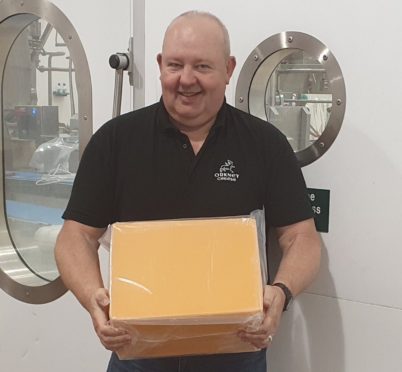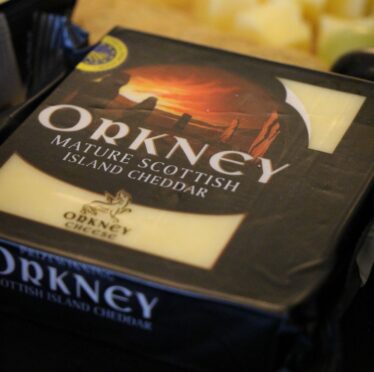Orkney Cheese Company is aiming to increase production, create jobs and reach new markets, following a £925,000 upgrade of its Kirkwall base.
The project will enable the firm to transfer its cutting and packaging operations to the town from the Scottish mainland, where they are currently carried out.
Two new jobs are expected to be created and 22 retained and the move will also lead to the launch of a new line of locally branded cheese.
The company is primarily owned by Orkney Milk, a co-operative of 14 dairy farmers, and is the islands’ sole producer of the award-winning Orkney Scottish Island Cheddar.
New cutting tables are being installed at its facility on Hatston Industrial Estate, along with a vacuum packer, a touchless technology operating system and energy-efficient refrigeration equipment.
The project has been given backing of up to £370,000 by development agency Highlands and Islands Enterprise (HIE).
Orkney Cheese chairman Richard Herdman said: “We really appreciate the help and support we’ve received from HIE.
“It has been invaluable in upgrading the process controls at Orkney Cheese and will secure our future with some improvements in efficiencies and thereby reduce our carbon emissions.
“With the unexpected challenges of the pandemic, it has been a long haul to get to this point but we have other projects in the pipeline in the coming year that will further secure our future.”
Company ‘pivotal’ to Orkney dairy sector
The bulk of cheddar made by Orkney Cheese is sold by dairy products company Lactalis into French food outlets, other export markets and UK supermarkets.
Several local businesses buy the remainder to add value by smoking and flavouring and sell it on under their own brands.
Ruth Kirkpatrick, of HIE’s Orkney area team, said: “We are really pleased to support Orkney Cheese’s developments after what has been a very challenging year for the business.
“The company is an important employer in Orkney and is pivotal to the sustainability of the whole dairy sector.”
Orkney Scottish Island Cheddar was granted special protection by the European Union in 2011 as it differs from other traditional cheddars due to the unique “dry stir” technique used in its production.

